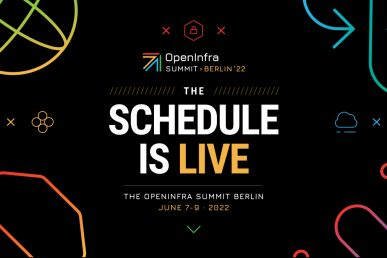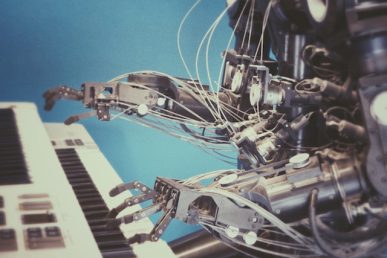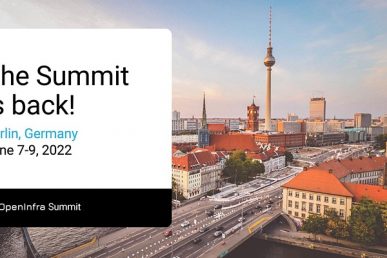I love data. With the OpenStack Summit Berlin agenda going live this morning, I decided to take a look at some of the math behind November’s event. More than 100 sessions and workshops covering 35 open source projects over nine tracks—that’s a lot to cover in three days. It makes it even more challenging to build an onsite schedule while still providing yourself a chance to navigate the hallway track and collaborative Forum sessions—which will be added to the schedule in the upcoming weeks.
So who exactly can you collaborate with in Berlin? Represented by Summit speakers alone—there are 256 individuals from 193 companies and 45 countries that you may run into during the hallway track.
Before I start, I want to say a big thank you to the programming committee members who worked very hard creating the Summit schedule. It’s not an easy task—taking over 750 submissions from over 500 companies and turning into content that fits within 100 speaking slots.
Now, to take full advantage of the incredible talks that are planned for November, I wanted to share a few tips that I find helpful when putting my schedule together.
Start with the 101
Whether it’s your first Summit or you’re new to a project and want to get involved, there are a lot of sessions and workshops for you. You can either search for sessions that are tagged as 101 or you can filter the schedule for sessions marked as beginner. If there’s a particular project where you want to begin contributing, project on-boarding sessions will be added soon.
If this is your first Summit, I would recommend planning to attend some of the networking opportunities that are planned, including the opening night Open Infrastructure Marketplace Mixer.
Find the users
If there is anything I love more than data, it’s meeting new users and catching up with those I know. This makes the case study tag one of my most frequently used filters. If you are like me and enjoy learning how open infrastructure is being used in production, the Berlin Summit will not disappoint. From BMW sharing its CI/CD strategy with Zuul to Adobe Advertising Cloud sharing its OpenStack upgrade strategy, there are a lot of users sharing their open infrastructure use cases and strategies.
There are a few new case studies that have really caught my eye and have already landed on my personal schedule:
Filter by use case
Whether you’re interested in edge computing, CI/CD or artificial intelligence (AI), the Summit tracks provide a way to filter the sessions to find operators, developers and ecosystem companies pursuing that use case case.
Sessions are counted by track based on the number of submissions that are received during the call for presentations (CFP) process. For the Berlin Summit, here is the track breakdown by number of sessions:
- CI/CD: 10 sessions and three lightning talks
- Container Infrastructure: 15 sessions and four lightning talks
- Edge Computing: 12 sessions and four lightning talks
- Hands-On Workshops: 10 90-minute workshops
- HPC / GPU / AI: seven sessions and two lightning talks
- Open Source Community: five sessions and two lightning talks
- Private and Hybrid Cloud: 28 sessions and eight lightning talks
- Public Cloud: nine sessions and three lightning talks
- Telecom and NFV: 13 sessions and four lightning talks
Search the relevant open source projects
It was not a typo earlier when I mentioned that there are over 35 open source projects covered by the sessions at the Summit. Whether you’re trying to find one of the 45 Kubernetes sessions or a TensorFlow session on AI, the project-specific tags enable you to meet the developers and operators behind these projects.
Here are the top 10 open source projects and the number of sessions you can explore for each project:
- OpenStack: 84
- Kubernetes: 45
- Docker: 17
- Ansible: 14
- OPNFV: 12
- Ceph: 11
- Open vSwitch: 10
- ONAP: 10
- Zuul: 8
- Prometheus: 6
Now, it’s time to start building your schedule. The official Summit mobile app will be available in the upcoming weeks, but you can still build your personal schedule in the web browser. Stay tuned on Superuser as we will feature top sessions by use case in the upcoming weeks and a few content themes spread across all nine tracks.
- Revolution in Cloud Economy: How FishOS – Integrated Solution Reduced Enterprise’s Cloud Costs by 50% - July 1, 2024
- Inside Open Infrastructure: June 2024 - June 18, 2024
- 2024 Superuser Awards Nominations Now Open - June 9, 2024

)










